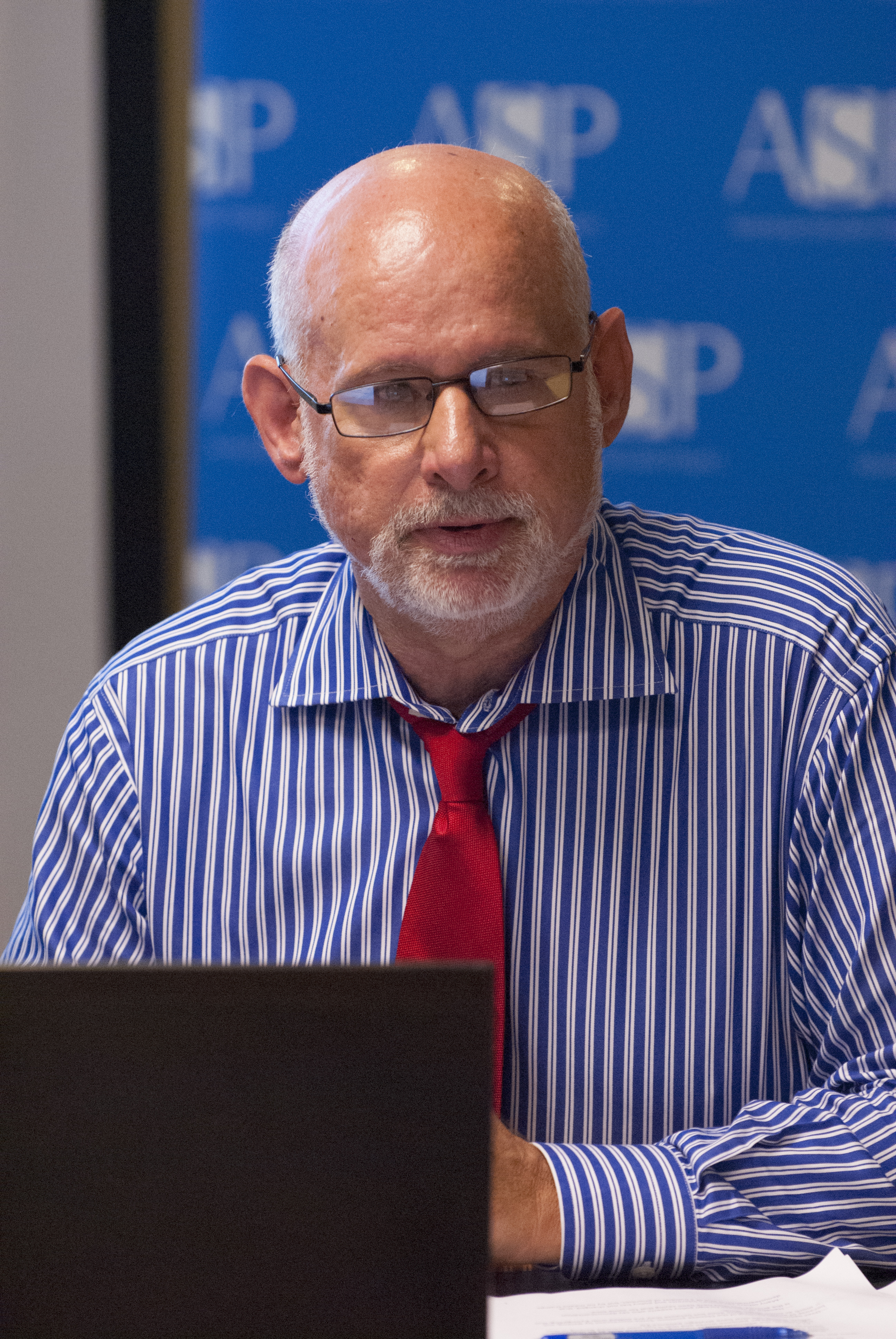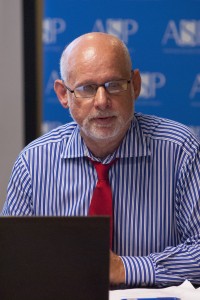
Event Recap: Joel Wit and Policy Observations about North Korea
Podcast: Play in new window | Download
Subscribe: Apple Podcasts | RSS
Two days ago Joel Wit, a former State Department satellite imagery analyst now with 38 North, spoke here at the American Security Project on North Korea’s nuclear and missile programs and his observations about American policy in regards to these programs. Previously, I wrote about Mr. Wit’s conclusions regarding his imagery analysis of North Korean nuclear and missile facilities including its testing sites and its reactors. Today I will be discussing his policy observations and opinions.
 Mr. Wit pointed out that recently the U.S. has been heralding China’s increasing dissatisfaction with North Korea and cooperation with the U.S. on sanctions as a success that shows increasing diplomatic solidarity against North Korea’s nuclear program. Unfortunately, he points out that this does not accurately describe the current state of world affairs in regards to North Korea and that the American diplomatic establishment may be very close to failing to recognize the danger of its current approach to North Korea.
Mr. Wit pointed out that recently the U.S. has been heralding China’s increasing dissatisfaction with North Korea and cooperation with the U.S. on sanctions as a success that shows increasing diplomatic solidarity against North Korea’s nuclear program. Unfortunately, he points out that this does not accurately describe the current state of world affairs in regards to North Korea and that the American diplomatic establishment may be very close to failing to recognize the danger of its current approach to North Korea.
Mr. Wit stated that the current U.S. approach to dealing with North Korea, which he called “strategic patience 2.0,” is unintentionally moving the U.S. and the international community closer to tacitly accepting North Korea’s new status as a nuclear state, instead of further seeking to denuclearize the regime. In “doubling down” on our disinterest in diplomacy with North Korea the current prevailing belief is that China will now begin to apply pressure on North Korea to denuclearize; Mr. Wit stated that he believed this to be an “overly optimistic reading” of the situation.
As he noted during the imagery analysis, North Korea has been undeterred from building up and expanding its nuclear test facilities, despite China’s apparent push for denuclearization of the peninsula. This is in spite of what the American public is often told; that China is the key player who has leverage over North Korea.
It should be understood that China is probably not working with U.S. because of American diplomatic efforts, but out of frustration with North Korea. China wants more diplomatic engagement with North Korea, as opposed to the U.S.’s expressed interested in strategic patience 2.0. The U.S. may lose China’s support if it continues with its current diplomatic approach.
Furthermore, while China appears to be bringing pressure to bear on North Korea, China is still engaging in activities with North Korea on several levels that make the American initiative to denuclearize the peninsula more difficult. These activities include the recent high level visits by envoys of both countries and satellite imagery that seems to confirm the building of a new joint Chinese-North Korean industrial center in a free trade zone over the past few months since North Korea’s most recent nuclear test.
South Korea and Japan are also beginning to negotiate with North Korea without sticking to the conditions of denuclearization, a worrying sign that the U.S. lead diplomatic bulwark against North Korea is increasingly shaky.
The issue, as Mr. Wit puts it, is “coercive diplomacy” is very important in dealing with North Korea, but the U.S. needs to embrace the diplomacy component of this. The U.S. needs to signal to North Korea that it is willing to talk about talks, not negotiations or appeasement, in an effort to find an opening. Through such talks the U.S. might also be able to gain a better understanding of the current North Korean regime, how to negotiate with Pyongyang, and what its major legitimate concerns are.
Mr. Wit concluded his remarks on policy by stating the U.S. needs to lead from the front of the diplomatic pack on North Korea, and needs to try to make progress on issues of substance in regards to security rather than continuing to ignore the Pyongyang regime in perpetuity. Rather than closer to a breakthrough, we are closer to tacit acceptance of North Korea as a nuclear state through our inaction; once this happens it will become truly impossible to denuclearize the Korea peninsula.
You can find more about 38 North’s and Joel Wit’s satellite imagery analysis here at 38 North and here at the Associated Press.
Click Below to Listen to the Event Audio:
Christopher Smith is a PhD student at the University of Arizona’s Department of Chemistry and Biochemistry with a focus on Analytical Chemistry.






[…] summaries on the imagery analysis and Mr. Wit’s policy observations can be found on the American Security Project […]